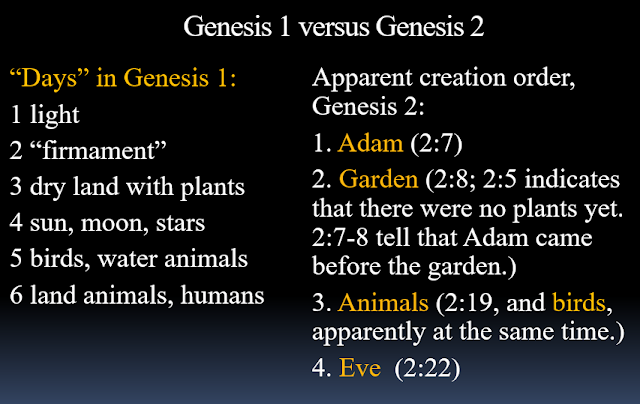1. A story of great but unknown age which originally embodied a belief regarding some fact or phenomenon of experience, and in which often the forces of nature and of the soul are personified; an ancient legend of a god, a hero, the origin of a race, etc.; a wonder story of prehistoric origin; a popular fable which is, or has been, received as historical.
2. A person or thing existing only in imagination, or whose actual existence is not verifiable.
And what is history? The Project Gutenberg eText of Webster's 1913 dictionary says this:
1. A learning or knowing by inquiry; the knowledge of facts and events, so obtained; hence, a formal statement of such information; a narrative; a description; a written record; as, the history of a patient's case; the history of a legislative bill.
2. A systematic, written account of events, particularly of those affecting a nation, institution, science, or art, and usually connected with a philosophical explanation of their causes; a true story, as distinguished from a romance; -- distinguished also from annals, which relate simply the facts and events of each year, in strict chronological order; from biography, which is the record of an individual's life; and from memoir, which is history composed from personal experience, observation, and memory.
Some Bible scholars claim that Genesis 1-11 is history. If I understand them, they mean that this text relates real events which happened in sequence as they are read in that text. Other Bible scholars claim that the same passage is myth. If I understand them, these scholars mean that this text is true, in the sense that we are to learn from it, and that it tells us about God, but that it does not necessarily portray real events, nor events in the sequence in which they actually happened.
One author who thinks Genesis 1-11 is myth is Joel Edmund Anderson. Here's an excerpt from one of his blog posts:
Saying Genesis 1-11 is myth doesn’t
denigrate it. “Myth” doesn’t mean “untruth.” It is a specific genre of
ancient writing that was used to describe a culture’s worldview
regarding what that culture believed about (a) the gods/God, (b) the
nature of human beings, and (c) the nature of the created order. It
wasn’t trying to convey historical facts. It was trying to articulate
that “worldview lens” through which that culture could interpret their
world.
Anderson has written many other blog posts on these topics. So have others. (Here's another of Anderson's posts, pertinent to the topic of the post you are reading.)
What should we learn from Genesis 1-2? I am not God, so cannot be certain of what He wanted us to grasp, but the things that we were meant to learn probably included, first and foremost, that there is only one real God, powerful and wise enough to make the world as it is. Very possibly, mentioning the sun and the moon as appearing on the fourth day, rather than the first day, and without specifically naming them, shows us, and the ancient Hebrews, that we shouldn't worship the sun and the moon. We are also probably meant to learn that God is responsible for beauty, diversity and order in the world, and that humans have special responsibilities -- we are, in some senses, god-like.
Let's now look at Genesis 1 and Genesis 2:
(This graphic gets tangled up with other parts of the blog, on some platforms. The graphic is still there, as a separate file. Feel free to use the graphic, with no attribution needed.)
This post shows that Answer in Genesis, the most prominent Young-Earth Creationist organization, doesn't believe that there is, or was, a firmament. I guess that that means that the verse about the creation and existence of that firmament can't be history, as history is defined above. (Paragraph added June 17, 2022.)
Thanks for reading!


2 comments:
You’re right, there are differences between the two creation records at the start of the Book of Genesis. Apart from the ones that you list, we could add others, for example the Adam of Genesis chapter 1 is a ruler and the Adam of Genesis chapter 2 is a servant. A careful reading of the first creation record and Genesis 2 v 4 raises the possibility that the creation record of Genesis 2 – 3 belongs to the second and third days of the first creation record. Have a look at www.untanglinggenesis.co.uk/linking-the-2-records for more details. This does mean that we have 2 different Adams in the two creation accounts, but we shouldn’t be too shocked by this, as this is what the apostle Paul explained in Romans 5 and 1 Corinthians 15.
By viewing the creation records figuratively, Genesis chapter 1 becomes a marvellous prophecy setting out God’s purpose for mankind, whereas Genesis chapters 2 and 3 describes God’s first dealings with mankind on a spiritual level.
Thank you for your wise addition to my post.
Post a Comment